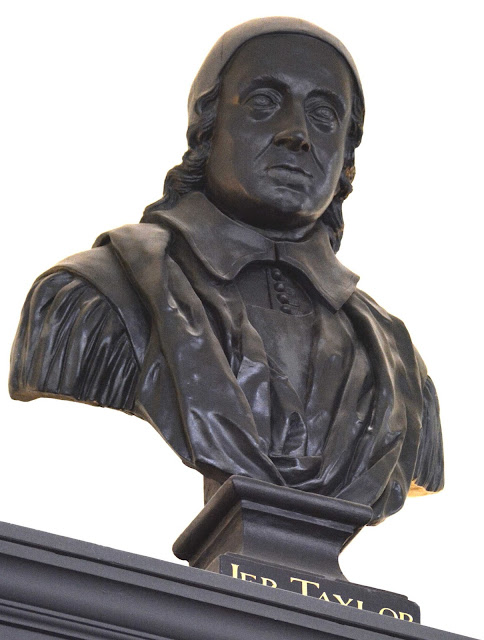The Codrington Library Plaster Busts by John Cheere,
All Souls College, Oxford University.
Part 17. Jeremy Taylor (1613 - 67).
Bishop of Down and Connor
Fellow of All Souls
For a very useful biography see - https://en.wikipedia.org/wiki/Jeremy_Taylor
Jeremy Taylor
Anon.
Portrait at Gonville and Caius College. Cambridge.
_____________________________________

Jeremy Taylor
Anon
Oil on Canvas 100 x 60 cms approx
17th Century?
Durham University
Donated in 1842
Image Courtesy Art UK
_____________________________________

Jeremy Taylor
Pierre Lombart (1612 - 82).
Engraving
32.4 x 22 cms
1660
______________________________________________

Jeremy Taylor Bishop of Downe and Conner
Anon.
Engraving 146 x 87 mm.
1660 -70.
British Museum.
__________________________________
_________________________________________
Part 17. Jeremy Taylor (1613 - 67).
Bishop of Down and Connor
Fellow of All Souls
For a very useful biography see - https://en.wikipedia.org/wiki/Jeremy_Taylor
Jeremy Taylor
Anon.
Portrait at Gonville and Caius College. Cambridge.
_____________________________________

Jeremy Taylor
Anon
Oil on Canvas 100 x 60 cms approx
17th Century?
Durham University
Donated in 1842
Image Courtesy Art UK
_____________________________________
Jeremy Taylor
Pierre Lombart (1612 - 82).
Engraving
32.4 x 22 cms
1660
______________________________________________
Jeremy Taylor Bishop of Downe and Conner
Anon.
Engraving 146 x 87 mm.
1660 -70.
British Museum.
__________________________________
All photographs above taken by the author.
_________________________________________










